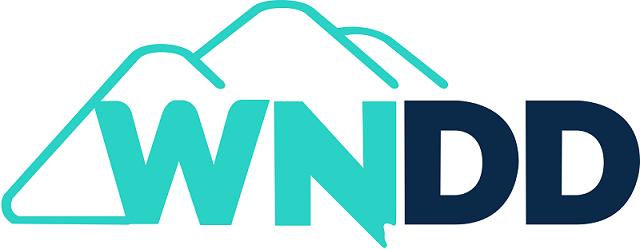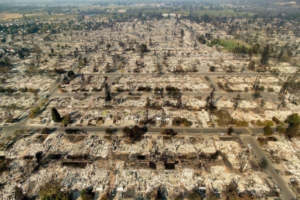Collected by the Western Nevada Development District
Economic development grants and loans can help revitalize and build sustainability in urban, rural, and tribal communities. Strategic investments help support local economies, create jobs, and attract private investments to better residents’ lives. Every first Friday, the Western Nevada Development District will share our Five for Friday; grant programs from a variety of sources that can help the region navigate economic recovery from the pandemic, support volunteer fire departments or bring connectivity to tribal lands.
Investing in America’s Communities
The Economic Development Administration (EDA) is investing $3 billion from President Biden’s American Rescue Plan which will enable the EDA to provide larger, more transformational investments across the nation in six grant categories while utilizing its greatest strengths, including flexible funding to support community-led economic development. This is the largest economic development initiative from the Department of Commerce in decades and will help communities across the country impacted by the coronavirus pandemic.
Upcoming EDA webinars that will take a deep dive on the grant categories:
Economic Adjustment Assistance Webinar
Monday, August 9 @ 2pm EST
Indigenous Communities Webinar
Tuesday, August 10 @ 2pm EST
Good Jobs Challenge Webinar
Thursday, August 12 @ 2pm EST
EDA American Rescue Plan Programs | U.S. Economic Development Administration
Every Nevadan Recovers
The State of Nevada has launched its Nevada Recovers website to solicit ideas and projects for monies the state will receive from the American Rescue Plan (ARP) which will allocate a total of $6.7 billion to the state through a wide number of programs and services, such as K-12 education, vaccine distribution, food security, consumer protection, housing assistance, direct payments to taxpayers, and additional unemployment insurance assistance. The ARP also includes direct aid to State and local governments, which should deliver $2.7 billion to the State of Nevada, with counties and local governments expected to receive an additional $1 billion (collectively). Along with the digital survey found on the website, the State Treasurer’s office has kicked off a 75-day “Nevada Recovers Listening Tour” to connect with communities all over Nevada to get ideas on how the state could spend the money.
Two of the upcoming Town Hall meetings have been announced in the WNDD region:
August 10th, 5:00 pm: Pershing County – Pershing Community Center, Lovelock
August 12th, 1:30 pm: Mineral County – Hawthorne Ordnance Museum
Nevada Recovers
RecupérateNevada.com
Volunteer Fire Departments
The Leary Firefighters Foundation’s Jeremiah Lucey Grant Program provides funds to paid and volunteer departments in three areas of support: training, with the goal of enhancing the professional development of departments; equipment, with the goal of providing the best equipment to help keep firefighters and the communities they serve safe; and technology, with the goal of ensuring that fire departments update along with technological advances. Grants typically range from $5,000 to $25,000. Deadline: Letters of Intent 8/15/2021; invited applications 10/1/2021. Visit the Foundation’s website to review the guidelines for the Jeremiah Lucey Grant Program.
Leary Firefighters Foundation
Urban and Community Forestry Program
This program provides funding to local governments, educational institutions, Native –American tribal governments and non-profit groups for urban forestry projects. Proposed programs should foster partnerships reflecting the ongoing effort to provide healthy, safe and livable neighborhoods are highly encouraged. This grant program is part of Nevada’s ongoing initiative to provide funding for urban tree inventory and analysis, management planning, urban forestry awareness, education and outreach projects, and new urban tree plantings. Grant applications are open, and are awarded on an open and continuing basis They range from a minimum of $2,000 to a maximum grant request for urban forestry management planning, inventory, or tree assessments of $30,000.
Urban and Community Forestry Program
Broadband Service on Tribal Land
The National Telecommunications and Information Administration (NTIA) has grants available for broadband service on Tribal Lands that promote the use of broadband to access remote learning, telework or telehealth resources during the Covid -19 pandemic. NTIA expects to make awards under this program within the following funding ranges: Broadband Infrastructure Deployment Projects: Between $1 million and $50 million. Broadband Adoption and Use Projects: $50,000 to $2.5 million. Deadline is September 1, 2021.
Broadband Service on Tribal Land

 Jillian Donatto is lead staffer in administering programs in support of members of the Houston- Galveston Area Council and the Gulf Coast Economic Development District; leading design and execution of a 2-Year Action Plan for COVID-19-related economic recovery; support other programs across the Sustainable Development Portfolio ranging from regional conservation to transport.
Jillian Donatto is lead staffer in administering programs in support of members of the Houston- Galveston Area Council and the Gulf Coast Economic Development District; leading design and execution of a 2-Year Action Plan for COVID-19-related economic recovery; support other programs across the Sustainable Development Portfolio ranging from regional conservation to transport. Sean McGlynn was named Santa Rosa City Manager in 2014. He was previously a deputy city manager from El Paso, Texas overseeing a range of departments including aviation, planning and economic development. Last year, Mr. McGlynn was named City Manager of the Year by the California City Management Foundation for going “beyond the call of duty to lead and serve the community.”ation & land use planning.
Sean McGlynn was named Santa Rosa City Manager in 2014. He was previously a deputy city manager from El Paso, Texas overseeing a range of departments including aviation, planning and economic development. Last year, Mr. McGlynn was named City Manager of the Year by the California City Management Foundation for going “beyond the call of duty to lead and serve the community.”ation & land use planning. Mark R. Schonberg (U.S. Army Colonel, Ret.) is President of TerraScale, a clean infrastructure design and development firm that is bringing Project Energos; a 3,700 acre mixed-use development near Fernley NV Reno, NV that aims to enable secure, swift storage and transmission of data between government agencies and commercial client. Schonberg has more than three decades of senior leadership in the United States Military in the IT services, Cyber Security and data center construction.
Mark R. Schonberg (U.S. Army Colonel, Ret.) is President of TerraScale, a clean infrastructure design and development firm that is bringing Project Energos; a 3,700 acre mixed-use development near Fernley NV Reno, NV that aims to enable secure, swift storage and transmission of data between government agencies and commercial client. Schonberg has more than three decades of senior leadership in the United States Military in the IT services, Cyber Security and data center construction. Hurricane Harvey was a Category 4 storm that hit Texas on August 25, 2017. It caused $125 billion in damage according to the National Hurricane Center. The storm dumped 1 trillion gallons of rain on Houston in four days, forcing 32,000 people out of their homes and into shelters There were 61 drinking water facilities that were inoperable and 203 boil-water notices in effect. Another 40 wastewater treatment facilities were inoperable.
Hurricane Harvey was a Category 4 storm that hit Texas on August 25, 2017. It caused $125 billion in damage according to the National Hurricane Center. The storm dumped 1 trillion gallons of rain on Houston in four days, forcing 32,000 people out of their homes and into shelters There were 61 drinking water facilities that were inoperable and 203 boil-water notices in effect. Another 40 wastewater treatment facilities were inoperable. The Tubbs Fire started the evening of Oct. 8, 2017 and burned a total of 36,807 acres in Napa and Sonoma counties — destroying 5,636 structures and resulting in the deaths of 22 civilians Much of the fire’s destruction was in Santa Rosa, particularly in the Coffey Park and Fountaingrove neighborhoods. The estimated cost of the fire’s destruction is between $7.8 to more than $10 billion.
The Tubbs Fire started the evening of Oct. 8, 2017 and burned a total of 36,807 acres in Napa and Sonoma counties — destroying 5,636 structures and resulting in the deaths of 22 civilians Much of the fire’s destruction was in Santa Rosa, particularly in the Coffey Park and Fountaingrove neighborhoods. The estimated cost of the fire’s destruction is between $7.8 to more than $10 billion. The COVID-19 pandemic highlights that we have entered the internet of all things, people and systems. Connectivity is essential for creating and sustaining economic growth and providing improved government services. This has also introduced enormous risks. Business and government agencies are increasingly a target for hackers and cybercrime, both globally and locally: SolarWinds, a major US information technology firm, was the subject of a cyberattack that spread to its clients and went undetected for months. In 2019, the Lyon County School District was the victim of a computer ransomware virus attack.
The COVID-19 pandemic highlights that we have entered the internet of all things, people and systems. Connectivity is essential for creating and sustaining economic growth and providing improved government services. This has also introduced enormous risks. Business and government agencies are increasingly a target for hackers and cybercrime, both globally and locally: SolarWinds, a major US information technology firm, was the subject of a cyberattack that spread to its clients and went undetected for months. In 2019, the Lyon County School District was the victim of a computer ransomware virus attack.